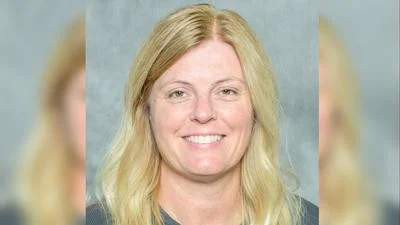Story County Hospital recently issued the following announcement.
If Grace DiGiovanni didn’t love research before, she certainly does now.
A graduate of the 10-week long PROMISE scholarship, she called the experience “one of the most enlightening moments” of her life.
Shared passion
DiGiovanni said her knowledge of science increased “400 percent,” simply by being around like-minded people.
“It was great to be around people who really care about science and innovation. I learned a lot about not only myself, but also how important teamwork and collaboration is,” she said.
The students are given a real-life project to work on over the course of the summer. DiGiovanni’s project was to study exosomal cargo proteins and micro-RNA for their contributions to neuritogenesis induced by tumors.
Learn more: Sanford PROMISE STEM education
A lot to unpack there, we know. Essentially, DiGiovanni explained, tumors release “little bubbles (called exosomes)” of information out into the extracellular space, which is a space outside of the cell membrane, but still part of a multicellular organism.
“The bubbles have all the jazz you need: proteins, micro-RNAs, different things like that. They float out to the extracellular space, and they go and signal to local nerves. They basically tell nerves, ‘Hey, we have all this really cool stuff. Why don’t you come back into our tumor and help feed it? Then, you can get important mirco-RNAs, that help you grow your neurites,’” she said.
Findings in HPV research
DiGiovanni validated that micro-RNAs contributed to neuritogenesis in cancer.
“I tested HPV-positive and HPV-negative head and neck cancer cell lines. Work from the Vermeer lab had previously shown that HPV-positive head and neck cancers are less densely innervated than HPV-negative disease. In other words, there are less nerves in HPV-positive head and neck cancers. The micro-RNAs that promote neuritogenesis toward the tumor (bring the nerves to the tumor) were more prevalent in HPV-negative bubbles (exosomes),” she said.
The McCook Central senior has always had a passion for research, but this experience further lit her fire. She said she’s so grateful to have been able to have had the real-life, hands-on experience this program offers.
“This was the greatest experience I’ve had to date. I am so grateful for it. I learned more about myself, but I also got to learn how working as a team can help change the medical field. When you work with like-minded people who have the same goal, you can achieve it,” she said.
Along with her knowledge of science, her networking also grew exponentially through the experience.
“The professional network that I have now is booming. I got to learn a bunch of different protocols that will be useful in my future careers,” she said.
“I would tell any perspective student to go for this program, because it was amazing for me. It would definitely promote their understanding of science and would carry them further than their peers. They’ll also just grow as a person,” she added.
Original source can be found here.





 Alerts Sign-up
Alerts Sign-up